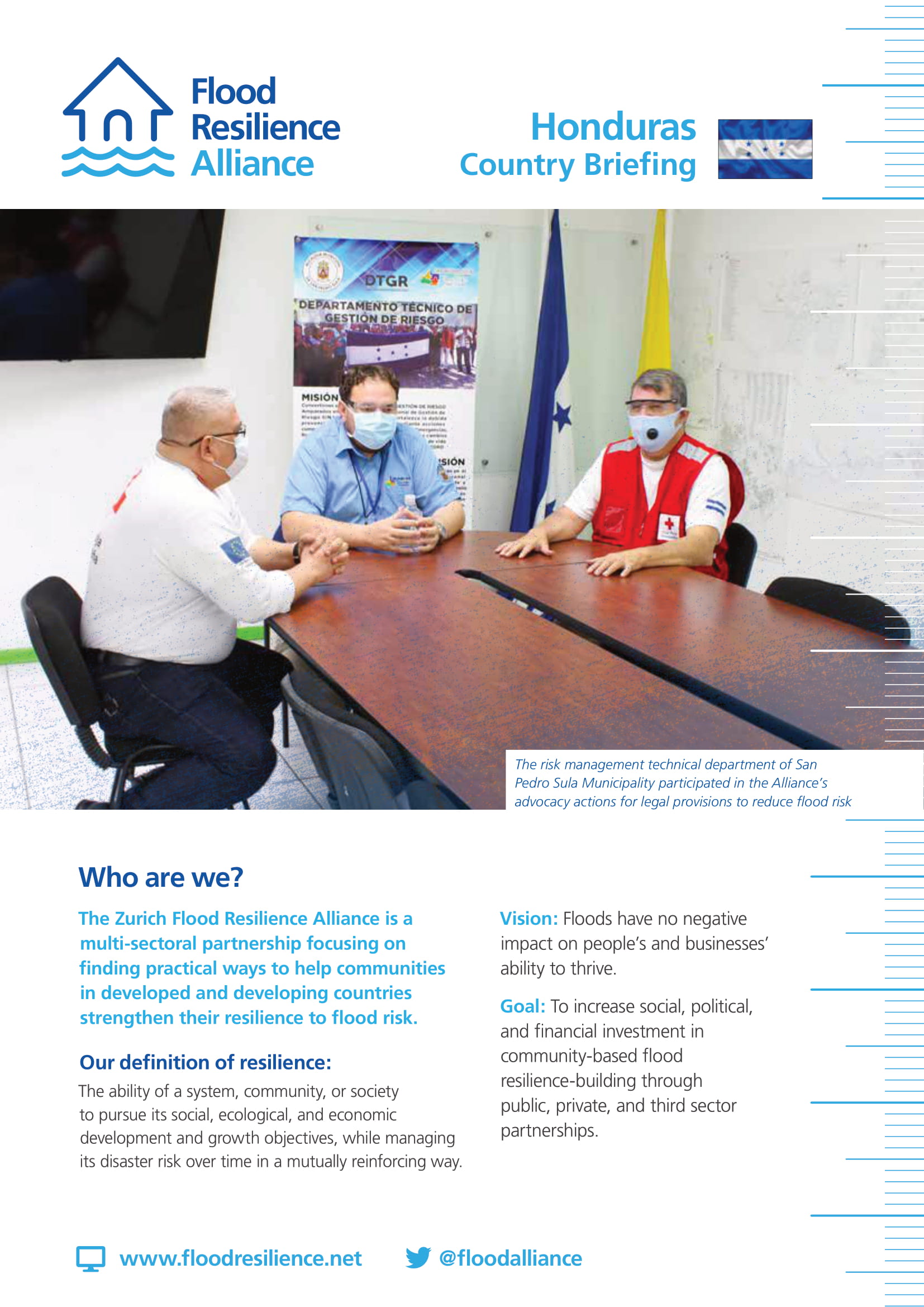Awareness material
Flood Resilience Alliance: Honduras Country Briefing

According to the annual Global Climate Risk Index produced by Germanwatch, Honduras is among the top five most vulnerable countries. The effects of disasters negatively impact development and increase poverty. In the last two decades, disasters have caused losses and damages to the country equivalent to US$ 5,592 m. Flooding affects 14.8 percent of the country’s territory. In the Sula Valley, in northern Honduras, floods affect 26.6 per cent of the territory.
Our objectives in Honduras:
- Develop a study of flood disaster risk reduction (DRR) policies, plans, guidelines, and legal frameworks in the municipalities of Villanueva, San
Pedro Sula, and Choloma. - Optimize collaboration on flood-related DRR through coordination networks, planning and execution of actions involving entities such as COPECO, the Flood Control Commission of the Sula Valley, municipalities, and other external actors, according to the Sendai Framework and the Central American policy on comprehensive disaster risk management (PCGIR).
- Share relevant information on legal frameworks for DRR with communities.
- Promote community participation on flooding DRR, primarily in the municipalities of the Sula Valley.
